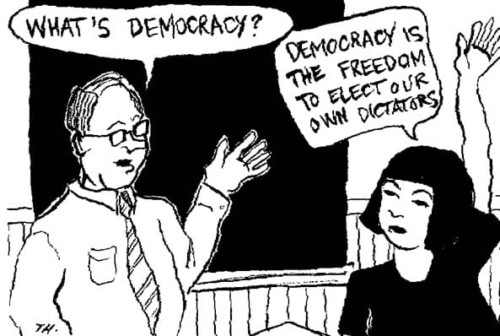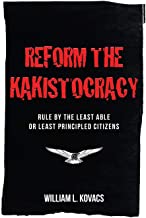Vi lever nå i en virkelighet der politisk korrekte meninger trumfer fakta og dokumentasjon. Og man behøver overhodet ikke legge til godvilja for å trekke paralleller til tidligere diktaturer for å se det, men man må være ekstremt historieløs for ikke å gjøre det.
“Hva er Gaslighting?
Sagt på en enkel måte – det er hjernevasking.
Tre stadier av Gaslighting
1. stadium
Det første stadiet avhenger av tillit i situasjonen og troverdige intensjoner fra overgriperens side, en tilstand som har blitt skapt av overgriperens kunstferdige selvbilde og hans innsmigrende propaganda. Når han har oppnådd denne tilliten vil overgriperen begynne å undergrave den, skape situasjoner og omgivelser der offeret begynner å tvile på sin egen dømmekraft. Til slutt vil offeret stole fullstendig på overgriperen for å mildne sin egen usikkerhet, og for å prøve å gjenopprette sin egen virkelighetsoppfatning som i realiteten er blitt som overgriperens.
2. stadium
Det andre stadium, forsvar, er en prosess der overgriperen isolerer offeret, ikke bare fra hans egen identitetsoppfatning, men også fra verdiene til hans likemenn. Ofrene vil tro at deres meninger er verdiløse, diskrediterte og merkelige. I politiske sirkler vil de bli kalt konspirasjons-teoretikere, dissidenter eller mulige terrorister. Som en konsekvens vil ofrene trekke seg tilbake og slutte å uttrykke seg av redsel for å ha latterlige oppfatninger og for å bli straffet.
Dette stadiet kan sammenliknes med Stockholm-syndromet. Stockholm-syndromet binder ofrene til den aggressive og blir en slags «foreldre».
Begge disse metodene blir hamret inn i offerets overlevelses-mekanisme for å gjenvinne og opprettholde kontroll.
3. stadium.
Det siste stadiet er depresjon. Et liv under et tyrannisk styre driver ofrene inn i en tilstand av total forvirring. De er fratatt all verdighet og selvbevissthet. De eksisterer i et informasjons-vakuum som bare blir fylt med det overgriperen mener er relevant.
Dermed er prosessen komplett, og ofrene har blitt redusert til en villige medsammensvorne i overgriperens bilde av en svært forvrengt realitet.”
Og denne gaslightinga kan man klart og tydelig se i dagens rasismedebatt, i den grad man nå kan kalle det for en debatt
Hovedårsaken til at at bakvendtland blir sett på som den nye normalen finner man i boken til den irske psykoanalytikeren Ian Hughes, som uten tvil er den viktigste boken man i dag kan lese. Uansett hvor høy utdannelse man har innenfor sosiologi og psykologi så vil man ikke klare å komme til en korrekt konklusjon som forteller oss hvordan og hvorfor vi har havnet i den situasjonen vi nå er i med mindre man leser boken til Hughes. Tittelen på boken er “Disordered minds. How dangerous personalities are destroying democracy” utgitt 2017. Boken kan lastes ned gratis på zlibrary, eller man kan kjøpe den her
I denne 16 minutters lange videoen forklarer psykoanalytikeren Ian Hughes hvordan psykopater, narsissister og paranoide kommer til makten, og han forteller oss at demokratiet er den viktigste beskyttelsen mot diktaturer.
Det Hughes dessverre ikke har forstått er at de som promoterer den såkalte klima krisa og den nye kjønnsideologien, som du kan lese om her her her og her, er at slike organisasjoner kan bli infiltrert av individer med de personlighetsforstyrrelsene han snakker om i videoen. Absolutt alle organisasjoner kan bli infitrert av slike individer og ødelegges innenifra, også demokratier.
“Demokratiet er et ideal som eksisterer på sin egen grunn, uavhengig av hvor mange som bekjenner seg til det. Det er et moralsk begrep og i siste instans et uttrykk for en vurdering av hva et menneske er. Demokrati er det idealet som vil at det enkelte individ selv skal ha rådighet over sine saker.
Dets motpol og evige motstander er den autoritære stat. Demokratisk er derfor enhver tendens som virker i retning av å begrense statens makt og stille det enkelte individ fritt. Udemokratisk og frihetsfiendtlig er ethvert forsøk på å utvide statens makt og la det kollektive få makt over den enkelte.
Om en regjering kan kalles demokratisk avhenger ikke av om den retter seg etter flertallet eller går inn for såkalte demokratiske ordninger som alltid vil kunne misbrukes for udemokratiske formål; det avhenger av om regjeringen i alt den foretar seg handler med blikket rettet mot det demokratiske ideal og så å si tenderer mot den demokratiske pol. Det er orienteringen det kommer an på, og ikke de ytre former og institusjoner.
For regjeringen som sådan vil alltid stå på autoritetens side og strebe etter å virkeliggjøre det autoritære autokratiske ideal. Det blir folkets, det vil si den enkeltes sak å motvirke disse bestrebelsene og skape en motvekt som kan trekke i en annen retning eller i det minste opprettholde en likevekt. Derfor vil det alltid være et motsetningsforhold mellom staten og den enkelte, og jo mer det lykkes en regjering å innbille folket at regjeringens interesser er identiske med folkets, desto nærmere er vi politistaten og diktaturet.”
Jeg har skrevet om dette blant annet her https://olehartattordet.blogg.no/nar-laererene-pa-skolene-er-med-pa-a-promotere-og-installere-diktaturet.html her https://olehartattordet.blogg.no/17-mai-komiteen-i-skien-har-opprettet-goebbels-sannhetsministerium-nar-man-ikke-forstar-forskjellen-pa-diktatur-og-demokrati-og-er-stolt-av-det.html og her https://olehartattordet.blogg.no/17-mai-vil-ikke-bli-feiret-igjen.html
Et lite knippe anmeldelser av Hughes sin bok:
“As one of the most impressive and respected multidisciplinary scientists today, Ian Hughes in Disordered Minds gives a compelling and timely account of the dangers posed by psychologically dangerous leaders and provides a stark warning that the conditions in which this psychopathy flourishes – extremes of social inequality and a culture of hyper-individualism – are very much the hallmarks of our present age. A must read!”
Professor Frederick M. Burkle, Jr, MD, Senior Fellow & Scientist, Harvard University, author of Antisocial Personality Disorder and Pathological Narcissism in Prolonged Conflicts and Wars of the 21st Century, DMPHP, 2015
“An excellent account of how malignant narcissism is evident in the lives of the great dictators, and how the conditions in which this psychopathy flourishes have returned to haunt us. Disordered Minds serves as a clear warning that tyrants such as Hitler, Stalin and Mao should not be seen simply as historical figures, but rather as dangerous contemporaries, as modern people, closer to us than we might like to think, who can tell us something vital about our dangerous present and our uncertain future.”
Dr Kieran Keohane, Senior Lecturer in Sociology, University College Cork and editor of The Social Pathologies of Contemporary Civilization
“Ian Hughes adds new scientific insight to one of the deepest conundrums of politics: that positions of power appeal to the narcissistic, paranoid psychopaths among us, with catastrophic results for humanity. His argument that human institutions, particularly liberal democracy, are needed to constrain the worst of human nature, is profound and (needless to say) timely. Disordered Minds is sometimes disturbing, but it is consistently fascinating, and ultimately constructive and hopeful.”
Steven Pinker , Johnstone Professor of Psychology, Harvard University, and the author of The Better Angels of Our Nature and Enlightenment Now
“However they are formed, our world produces them – the psychopaths and those with narcissistic or paranoid personality disorders. You have met them, worked with them, maybe even lived with them or been victimized by them and you know just how bafflingly plausible they can be and how disastrously evil. Disordered Minds introduces us to the vast wastelands they are capable of creating when you and I, our neighbors, friends, families and colleagues fail to see just how dangerous they are, when we fail to underpin our democracies with the infrastructures capable of withstanding the onslaught of the deceptively charismatic lunatic leader. Read this exceptionally fine and accessible work of scholarship and make it your business to keep their disordered minds from disordering our universe.”
Mary McAleese, Former President of Ireland
Outline of the Book:
“A personality disorder is a type of mental disorder characterized by a rigid and unhealthy pattern of thinking, functioning, and behaving. Most personality disorders, such a depressive disorder and obsessive-compulsive disorder, cause distress to the person suffering from the condition, rather than posing a danger to others. Of all the personality disorders recognized by psychiatrists, this book is concerned with only three – psychopathy, narcissistic personality disorder, and paranoid personality disorder. People who suffer from these disorders pose a very real danger to society.
Chapter 1 : ‘Disordered Minds’ describes what we know about dangerous personality disorders. The chapter develops the book’s first argument: that people with these disorders pose a grave threat to society when they act together and when the circumstances are such that they can influence a substantial proportion of the psychologically normal population to support them.
Chapter 2 : ‘Stalin and Mao’ and Chapter 3 : ‘Hitler and Pol Pot’ provide concrete examples of this dynamic in practice. These chapters use a model called the ‘toxic triangle’, comprising destructive leaders, susceptible followers, and conducive environments, to illustrate how people with these disorders come to power. These chapters show that the history of the twentieth century cannot be understood without acknowledging the central role that people with these disorders played in fomenting the century’s most tragic events.
Chapter 4 : ‘Democracy as Defense’ introduces the book’s second main argument, namely that democracy can be understood as a system of defenses against people with these disorders. This system of defenses comprises the rule of law, electoral democracy, the principle of liberal individualism, social democracy, and legal protection for human rights. Acting together, this system of defenses serves as a deterrent against dangerous individuals, while democracy also creates ethical norms under which the majority of us are less likely to support them.
Chapter 5 : ‘Destroying Democracy’ argues that democracy remains fragile today because the conditions which empower this dangerous minority are still deeply embedded in our political, economic, and religious institutions. These conditions include vast inequalities in wealth and the culture of excessive greed which have come to characterize modern capitalism.
Despite the violence and greed that currently scar our world, there are grounds for optimism. These are set out in Chapter 6 : ‘Hope?’ Democracy has been spreading and deepening over time. As a result, many parts of the world today enjoy a greater level of protection against psychopathic, narcissistic, and paranoid leaders than in any previous era. Reasons for hope can also be found in our psychology.
Dangerous personality disorders are, at least in part, the result of failures in love and care in early childhood. Finding ways to reduce the occurrence of such disorders, while strengthening societies’ defenses against those who suffer from them, can lead us to a more just and peaceful world.
Much more, however, remains to be done. The existential threats that humanity faces at this moment in history are very real. So the book closes by introducing a fourth argument. At the beginning of the twenty-first century a strengthening of democracy is urgently required if human progress is to continue, immense human suffering is to be avoided, and perhaps even if humanity is to survive, in the decades to come.
Why This Book Matters
There are three reasons why this book matters. First, the concept of personality disorder is generally not well understood. This book aims to clarify what these disorders are and to show, given the difficulties in conclusively identifying individuals with these disorders, that a more nuanced and effective approach to public diagnosis is needed.
Second, by explaining how democracy can be understood as a system of defenses against dangerous personalities, this book provides a new and vital psychological perspective on democracy. At a time when democracy itself is in retreat worldwide, it explains clearly what democracy is and why it is crucially important that we defend it.
Third, this book matters because the malign influence of a minority of people with dangerous personality disorders is causing the rest of us to believe in a distorted view of our own nature. We are not an irredeemably violent and greedy species. The majority of people the world over crave peace, justice, and freedom from oppression and discrimination. It is only by reducing the influence of the minority with these disorders that we will begin to.”
“In his book Amador, written to his son, Spanish philosopher Fernando Savater warns Amador that humanity is not a given. We become human, Savater says, in the course of normal development through love and interaction with others. We need to acknowledge the disturbing truth that not everyone becomes fully human. In memory of the millions who have suffered and died at the hands of those with dangerous personality disorders, and in order to avoid the suffering and death of millions more, it is vital that we understand these conditions and their consequences more fully. If we are to have any hope of a more peaceful and humane world, keeping people with these personality disorders out of positions of power, although not sufficient by itself, must be an essential beginning.”
“The regimes of Stalin, Mao, Hitler, and Pol Pot demonstrate that people with dangerous personality disorders, when they act together, and when the circumstances are right, pose an existential threat to society.
Each of these leaders clearly displayed traits associated with psychopathy and narcissistic and paranoid personality disorders. These traits included the demand for complete submission on the part of subordinates, relentless paranoia, the blatant dehumanization of opponents, narcissistic rage, tendency to extreme over-optimism verging into fantasy, reckless risk taking, and an inability to change course in the face of disaster. The thesis that each leader suffered from dangerous personality disorders is supported not only by the presence of such traits, but by the extreme nature of these traits and their rigidity over each tyrant’s lifetime.
Each leader exhibited further features of note. Charisma was an important factor in enabling each dictator to rise to power. Each gained followers through their strength of personality and their exceptional ability to use rhetoric to influence and persuade others. Stalin, Mao, Hitler, and Pol Pot were also all driven by an utterly simplistic fantasy characterized by a mix of extreme narcissistic, paranoid, and psychopathic elements.
These fantasies shaped each of their lives and the regimes they created. And each of these tyrants indulged in narcissistic abuses of power to reshape their environment to support their grandiose visions of themselves. Each used power to eliminate enemies and prevent criticism of their inflated self-image and their prized narcissistic fantasy. And all lived in relative luxury while their countrymen suffered, a reflection of each leader’s belief that they were worthy of the exceptions they made for themselves from the hardships they imposed on others; worthy of the lavish lifestyles they led while others starved.
As already stated, however, an explanation of the central role that people with dangerous personality disorders play in political violence cannot be based simply on the personalities of individual leaders. Such an explanation must include all three elements of the ‘toxic triangle’ of destructive leaders, susceptible followers, and conducive environments.
In terms of susceptible followers, Stalin, Mao, Hitler, and Pol Pot all rose to power not simply as isolated individuals, but as a member of a pathological group which facilitated their rise. Each of these groups – the Bolsheviks, the Chinese Communist Party, the Nazi Party, and the Khmer Rouge – seized power according to the process described by Andrew Lobaczewski.
Not only did many of those close to each tyrant also suffer from dangerous personality disorders, but people with such disorders played key roles, right down to the village level, in securing the pathological group’s hold on power.
In Stalin’s USSR, Mao’s China, Hitler’s Europe, and Pol Pot’s Kampuchia, the presence of people with dangerous personality disorders in every town and village, who responded to the opportunities that the pathological group’s seizure of power presented to them, resulted, as Lobaczewski described, in the segregation of society into a psychologically disordered minority wielding power over the psychologically normal majority.
People with dangerous personality disorders at all levels within these societies actively participated in the destructive leaders’ agendas because they shared the leaders’ world views, and because they were presented with lucrative opportunities to pursue their own ambitions, regardless of the consequences for others.
This diagnosis of the catalytic role of people with dangerous personality disorders does not, however, allow us to escape the essential role that psychologically normal people also play in acts of mass murder. As already stated, the numbers of people who actively participated in the atrocities perpetrated under the regimes of Stalin, Hitler, Mao, and Pol Pot are simply too large for all of them to have suffered from dangerous personality disorders. People with normal psychology participated in great numbers in the atrocities committed by these regimes.
An understanding of mass political violence therefore requires that we acknowledge the fact, which Eric Hoffer stressed, that large numbers of psychologically normal people, when the circumstances dictate, can come to enthusiastically support the inhuman actions of psychologically disordered leaders.
One of the defining features of a person with a dangerous personality disorder is that their psychology is rigidly fixed. Regardless of the environment in which they find themselves, they will respond in the same fixed paranoid, narcissistic, or psychopathic manner. People with normal psychology, on the other hand, are characterized by their ability to think and act differently in different contexts. In times of peace and plenty, most people tend to live with their neighbors in a spirit of community, tolerance, and compromise.
In times of threat and scarcity, however, many psychologically normal people can come to feel anger and hatred toward others, and can come to believe that violence and oppression are valid responses to the threats they face. Under such circumstances, psychologically normal people become more willing to accept assertive leaders, and more likely to blatantly dehumanize perceived enemies.
As the ethical values of society are corroded, the pathological group can more readily attract adherents from the ranks of the angry and excluded, those alienated from mainstream society, those who endorse anti-social values, and those disillusioned with the failure of the current political regime. Once the pathological group has seized power and the use of violence and oppression has become widespread, the mass of psychologically normal people are gradually forced to conform out of fear for their lives.
In this process, of course, context is crucial. In the cases of Stalin, Hitler, Mao, and Pol Pot the conducive environment included war and social disintegration, the presence of real and perceived threats, and an absence of checks on power.
This description of the process through which society gradually becomes infected with the hatred and brutality characteristic of psychopathy, narcissism, and paranoia provides a coherent and credible explanation of why it is that ordinary human beings so often respond enthusiastically to the siren song of hatred. And it provides a stark warning of how political extremism of any kind, fanned by the hatred of a vengeful minority, can quickly result in outcomes that were previously inconceivable.”
Utdrag fra: Hughes, Ian. «Disordered Minds: How Dangerous Personalities Are Destroying Democracy».
Og denne boken er like viktig som boka til Ian Hughes, den forteller hvordan de samvittighetsløse i 10 000 år har herjet med oss og hvordan vi kan hanskes med dem:
Xenophobia. Racism. Fascism. Intolerance. Inhumanity. Coercion. Right wing populists increasingly draw attention around the globe, but the attention is misdirected. The real problem is not the the authoritarian, but the authoritarian personalities who follow him. If people do not blindly follow and obey the despot, he is irrelevant.Why do we attach ourselves to demagogues and mountebanks? Why do we defend even their most obvious hypocrisies and lies?
The answer is found in the history of civilization. For the past 10,000 years, those who disagreed with the king or his nobles risked ruin and death. But that is only part of the answer. The other part is that, despite our romantic traditions, kings and conquerors were vicious criminals. They represent the most evil psychopaths, narcissists, and sadists in the history of humanity.”
https://www.adlibris.com/no/e-bok/kings-conquerors-psychopaths-9781946160386
Teksten fortsetter under bildet
Historical cycles. Are we doomed to repeat the past? https://www.youtube.com/watch?v=9w6QYPzF2TI





